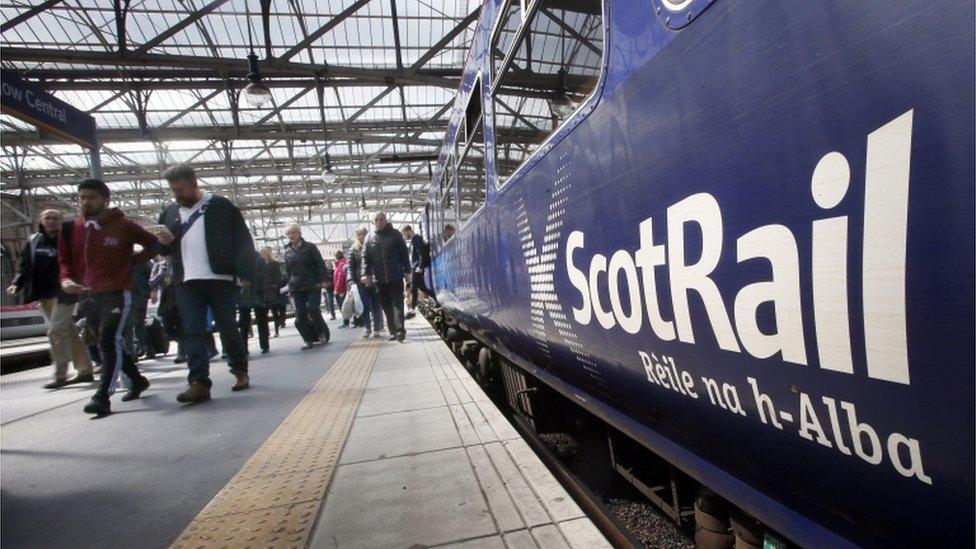Commuters feel the strain of taking the train
- Published
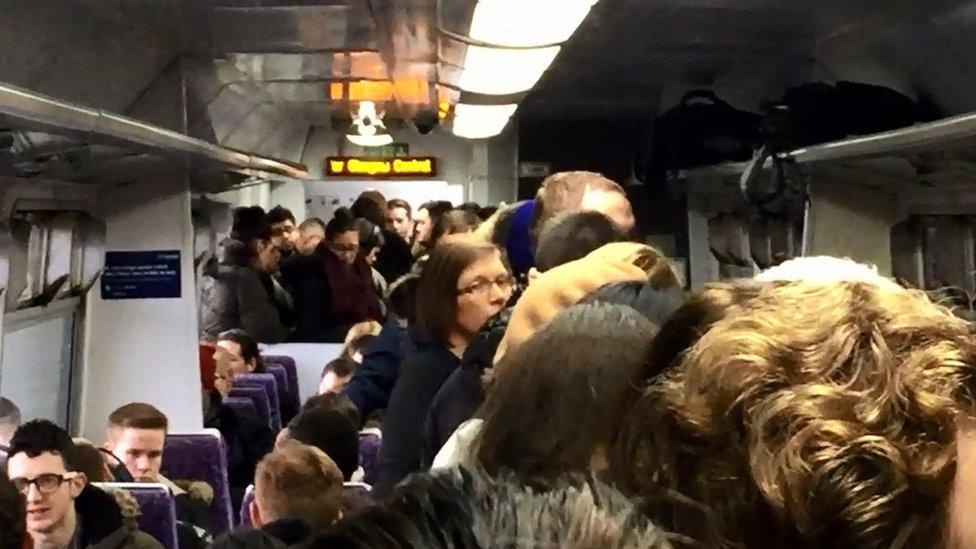
Passengers on a packed morning train from Barrhead to Glasgow Central
Passengers on Scotland's trains have been promised improvements but for many they can't come quick enough.
"Most weeks I'm standing probably 50% of the time," says Charles Kelly, who commutes from Dunblane to Edinburgh Park.
He says the trains are usually packed at rush-hour because there are not enough carriages.
Sometimes there are four carriages but on other occasions just two, he says.
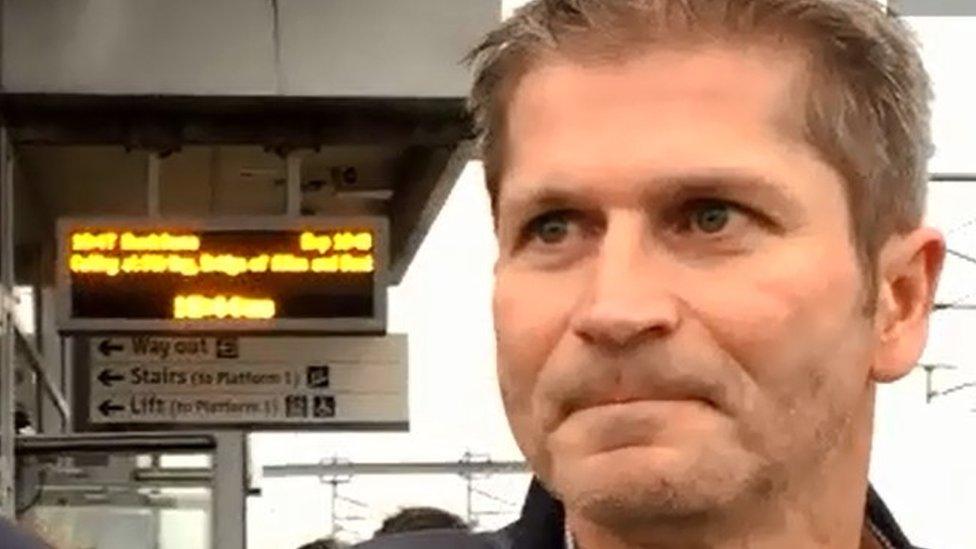
Charles Kelly says the return train from Edinburgh Park is usually packed
"There have been occasions where people have fainted because it is so busy, so hot," Charles told the BBC Scotland documentary Mind the Gap: Are Scotland's Trains Fit for the 21st Century.
"One of them was taken in an ambulance from Linlithgow."
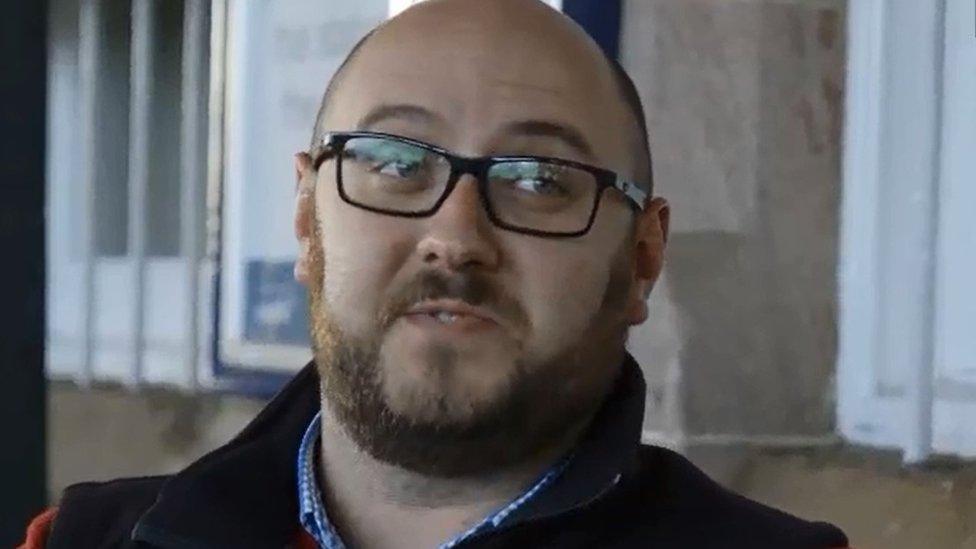
Jan Wasilewski, who travels from Dunfermline to Edinburgh, says people are packed in like sardines
Jan Wasilewski, who travels from Dunfermline to Edinburgh Haymarket, says it is "not a very reliable service" and the train capacity is too small.
He says: "Recently ScotRail pride themselves on providing additional carriages for the Edinburgh festival-goers.
"Fantastic, but then they are forgetting about the everyday Joe that travels back and forth on a daily basis on a packed train, like a sardine."
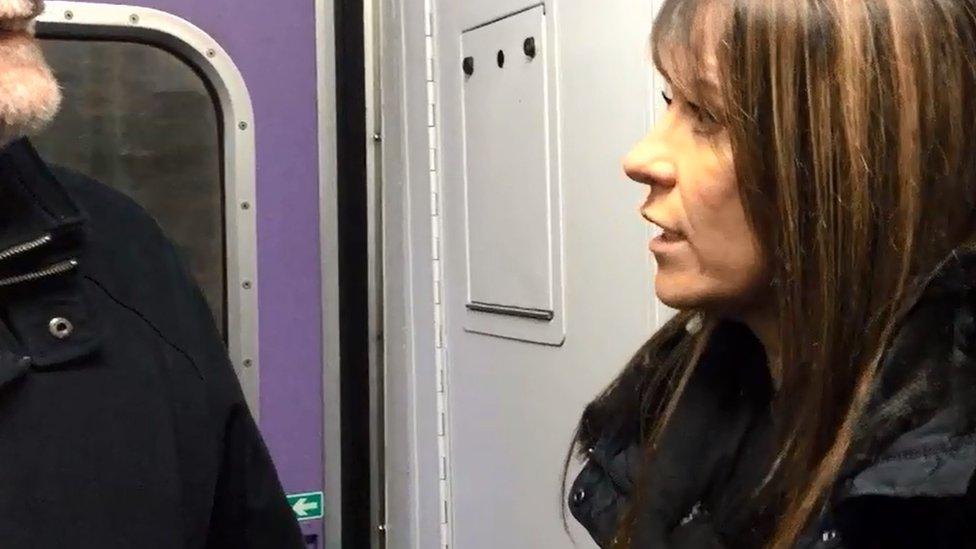
Lisa Tyrrell-Gribben says the train is "rammed" full after just a couple of stops
In Glasgow, Lisa Tyrrell-Gribben gets the train each day from Barrhead, south of the city, into Central station.
She says its two carriages are already full by the time the train reaches the first stop on its journey.
"Then you have got another five stops. By the time you get to Crossmyloof it is rammed," Lisa says.
"Sometimes when you get to Crossmyloof people can't get on because it is so busy."
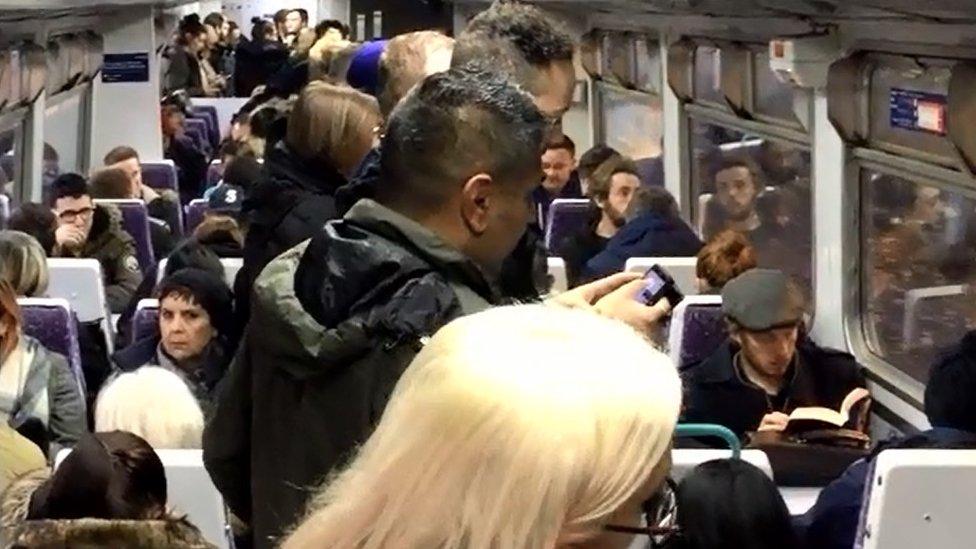
Lisa says the train can feel quite claustrophobic
Lisa adds: "It is a quite claustrophobic feeling at times.
"If you were to have an accident I don't know where you would go or what would happen."
Scotland's trains have been operated by Dutch firm Abellio since April 2015.
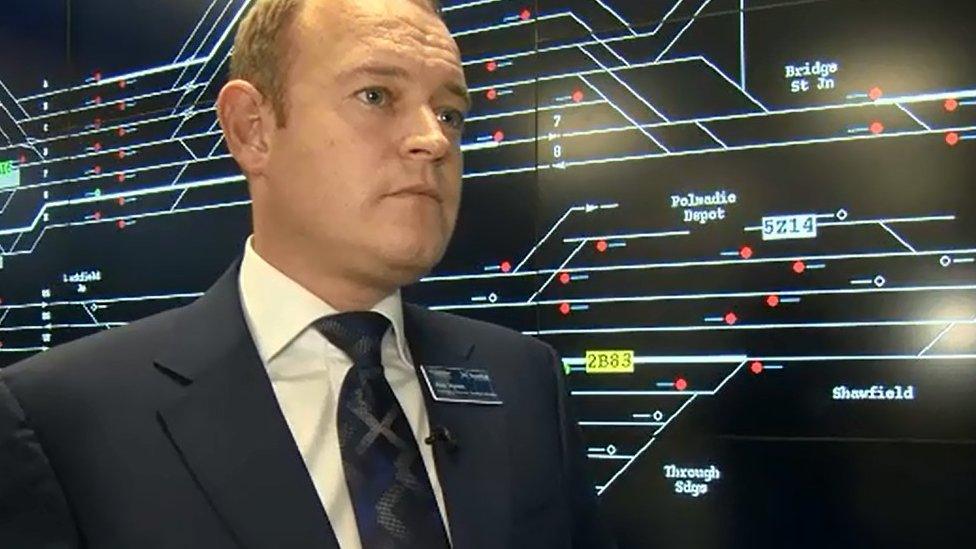
ScotRail Abellio's managing director Alex Hynes says new trains will come into service soon
However, it does not own the trains and carriages and instead has to lease them from rolling stock companies.
ScotRail Abellio's managing director Alex Hynes says he understands the frustration of passengers but improvement is on its way.
"There is not a single spare diesel train anywhere in the UK," he says.
"If there was it would be in Scotland."
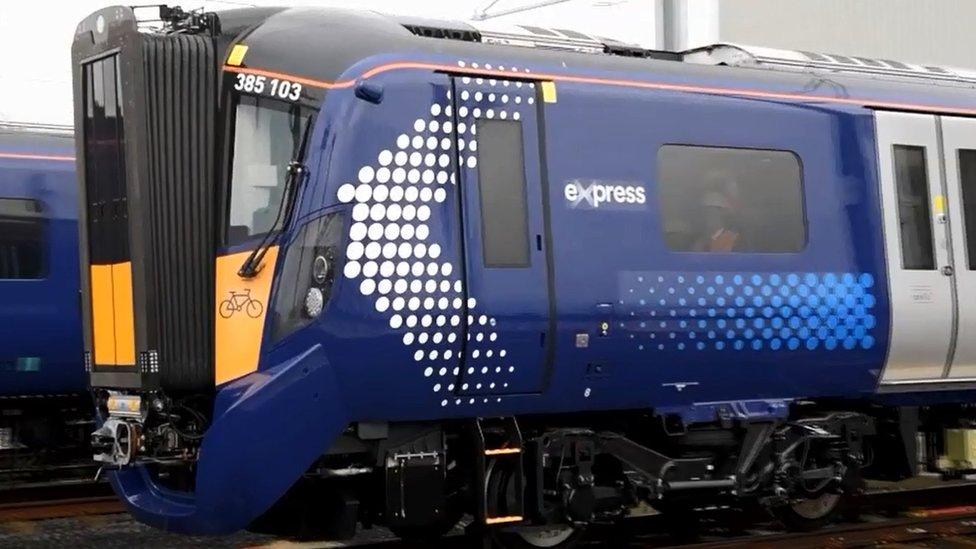
Scotrail will be getting new trains over the next two years including the class 385 electric trains
Mr Hynes admits that the size of Scotland's rolling stock fleet "is not big enough" but it will increase over the next two years.
"Currently we have 800 carriages in the fleet," he says.
"In 25 months time that's going to be 1,000 carriages. So that's a 25% increase in our rolling stock fleet.
"That's going to mean 100,000 extra seats for customers each week day. That's going to really help us attack the level of overcrowding."
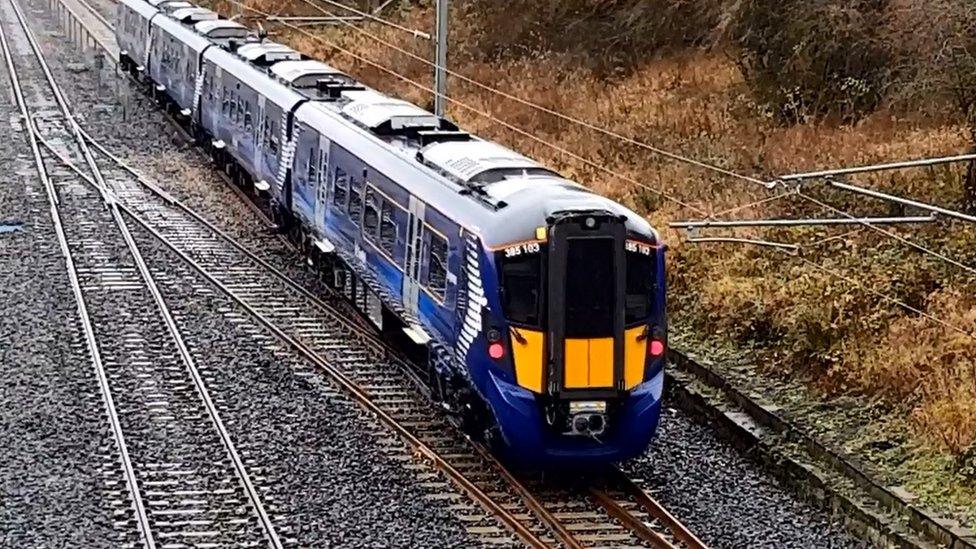
The new electric trains have been tested near County Durham and should enter service in the next few months
ScotRail Abellio has attracted criticism over the three years of its franchise but the most recent Transport Focus customer satisfaction survey put it on 85%, well above the UK-wide average of 81%.
However, it was recently reported that the operator didn't reach required benchmarks on 26 of 34 occasions, including space on the trains and punctuality.
In the BBC documentary, its managing director also addressed the issue of skip-stopping, where trains miss out scheduled stops in order to avoid blockages in the system.
Mr Hynes said "skip-stopping" was not used to massage punctuality figures.
"If a train is skip-stopped then it does not meet the punctuality standard," he said.
"We use it as a last possible resort on the intensive, frequent bits of our network where if we didn't skip-stop the delays would actually snowball and get worse."
ScotRail claims it runs about 60,000 trains a month and only a couple of hundred skip stops.
Huge investment
Scotland's ageing rail network and rolling stock has seen significant investment in recent years.
The electrification of the main Edinburgh-Glasgow line has been completed and it is hoped the first of the delayed class 385 electric trains will begin running on it soon.
It is hoped that they will bring increased capacity and speed to the service.
Scotland's transport minister Humza Yousaf said the Edinburgh-Glasgow Improvement Programme (EGIP) had been "huge", with investment in excess of £790m.
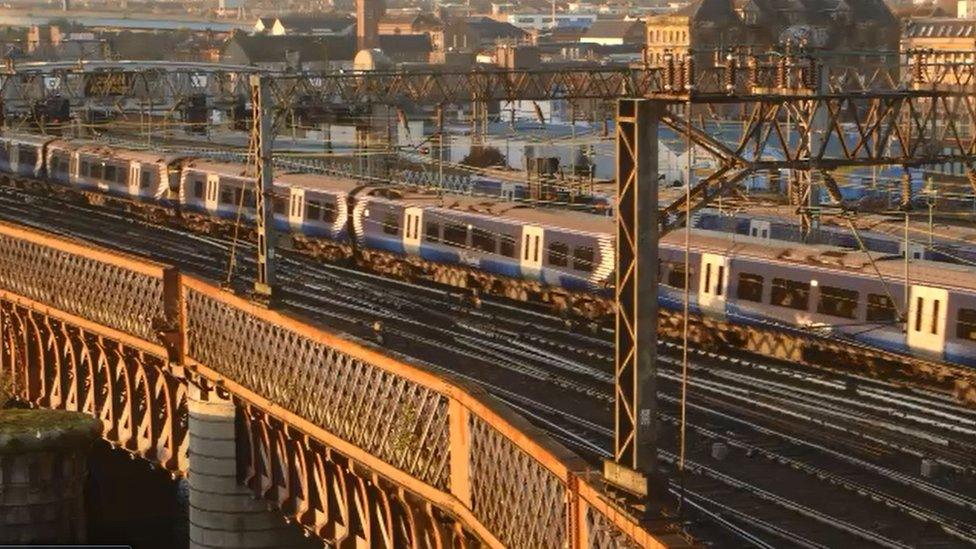
Mr Yousaf said: "It's been a massive investment by the Scottish government but much needed.
"We know that railways are becoming more popular than they have ever been before."
Mr Yousaf said there were "capacity constraints" on the network but they were working to improve connections.
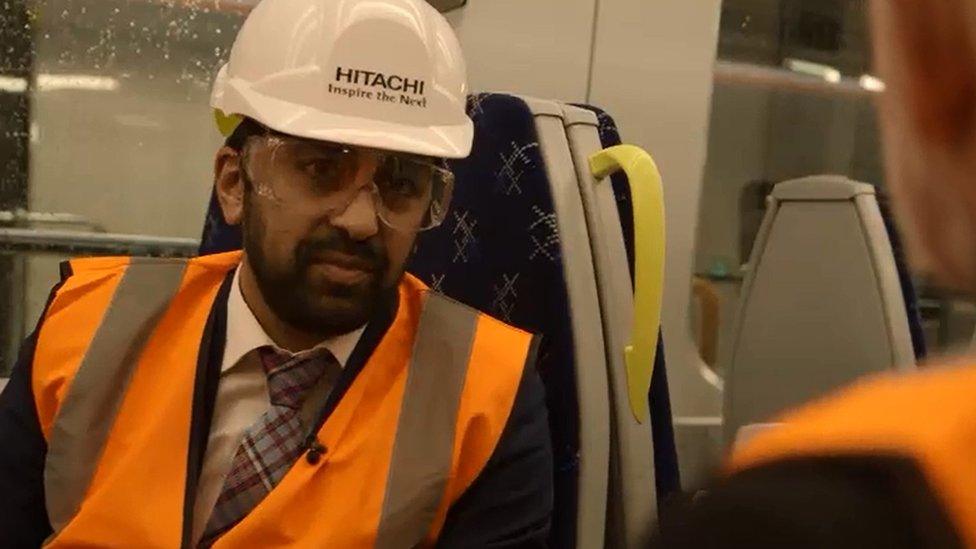
Transport Minister Humza Yousaf says there has been a huge investment in Scotland's railways
As well as the upgrade of the line between Scotland's two largest cities, the minister said he wanted other cities connected by high-speed trains.
There are also plans for more services between Inverness and the central belt via Aberdeen, using renovated "high-speed" trains.
Meanwhile, the line between Inverness and Aberdeen is also being improved.
Major works will take place on a notorious bottleneck between Dyce and Aberdeen over the summer.
The line between the two stations is currently single track, as are most lines outside the central belt.
By next year there are plans to provide an hourly service between Inverness and Elgin, with an extra 1,300 seats a day.
Improve performance
What will Scotland's trains look like in five years time?
The transport minister said: "You are going to see more capacity, so that means you are going to have a more comfortable experience."
He said there would be improvements to other experiences such as wifi connectivity.
"But what I want, and this is the most important component of any railway journey, is to improve and continue to improve the performance and the reliability of the trains."
- Published30 January 2018
